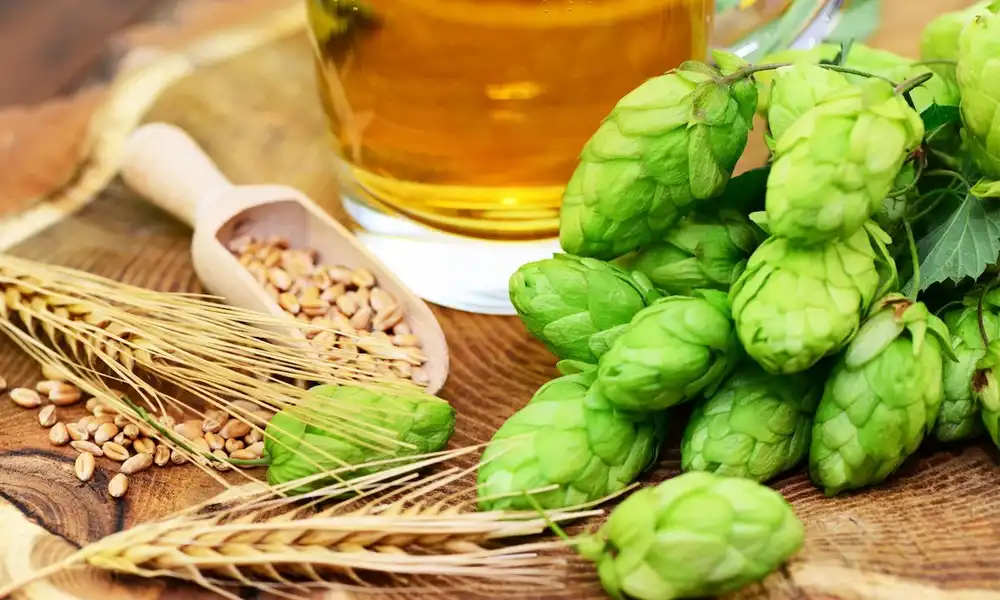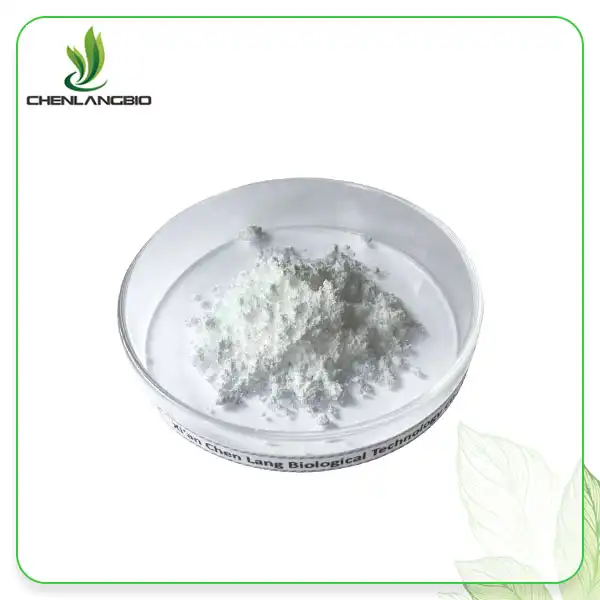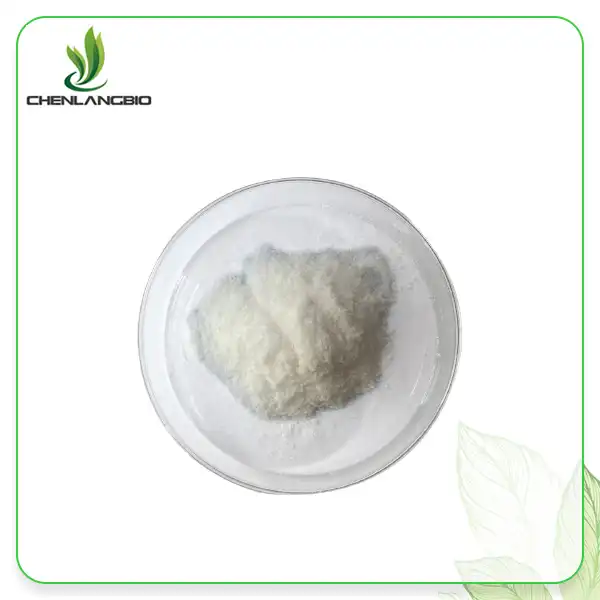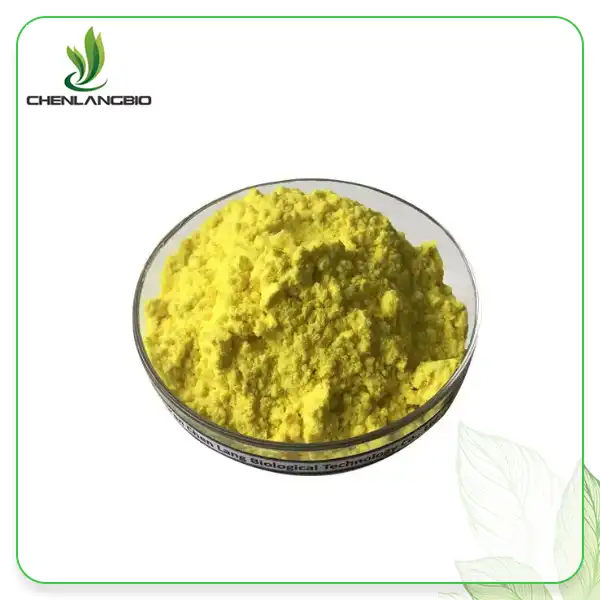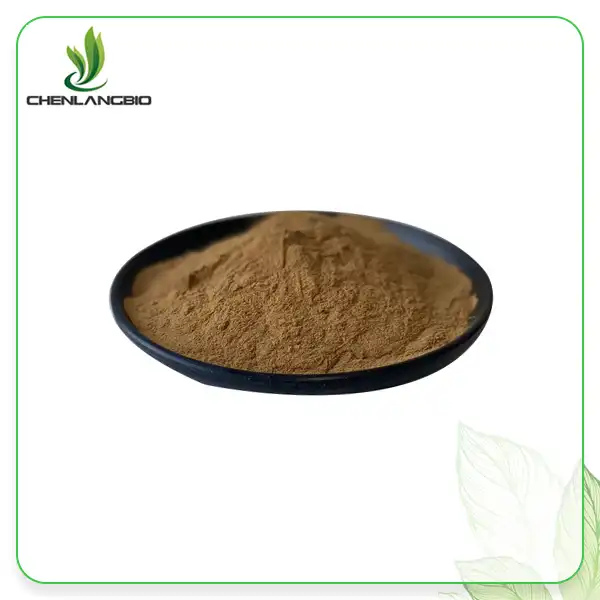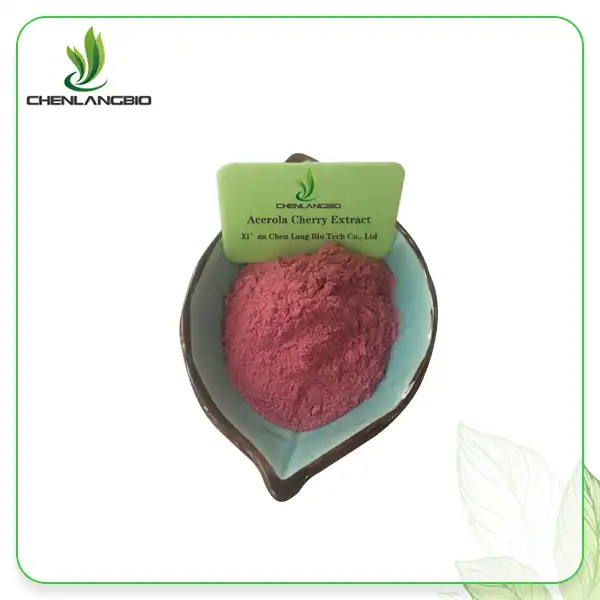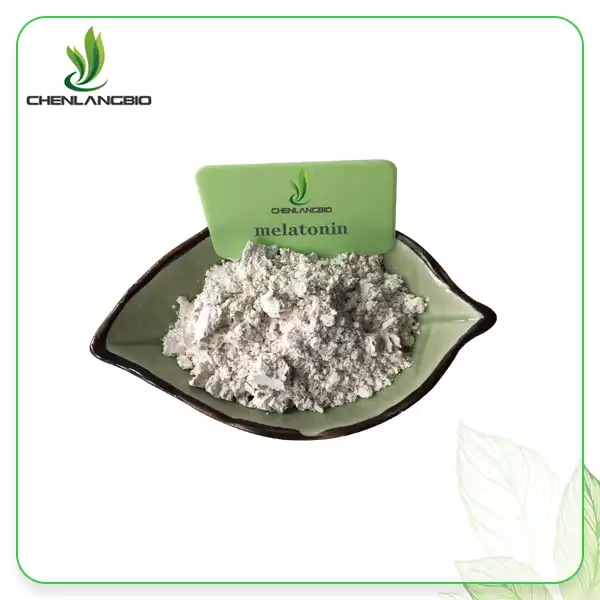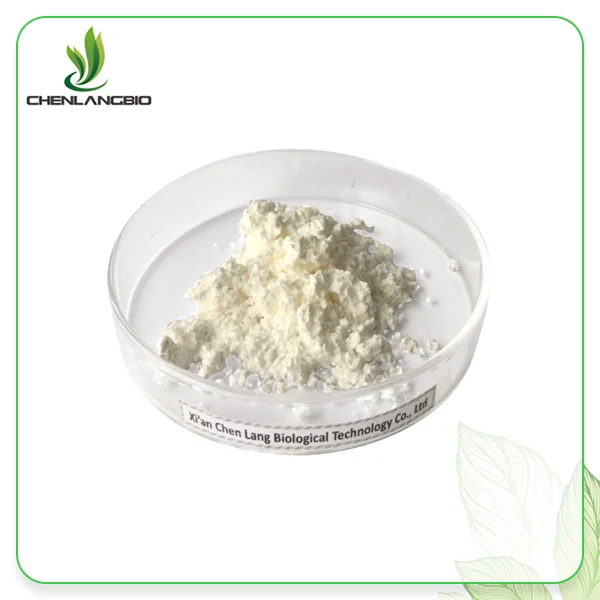Do Hops Have Flavonoids
2024-12-09 15:52:17
Hops, the flowering cones of the Humulus lupulus plant, have long been prized for their role in brewing beer. However, these verdant blossoms offer more than just bitter notes and aromatic qualities to our favorite brews. Scientists have lately focused on the possible health advantages of hops, especially their flavonoid concentration. This blog post delves into the intriguing world of hops flavonoids, exploring their presence, types, and potential impacts on human health. We'll uncover the science behind these powerful plant compounds and examine how they might contribute to the broader spectrum of nutritional supplements and natural remedies.
The Chemistry of Hops: Beyond Brewing
Unraveling the Complex Composition of Hops
Hops are a treasure trove of bioactive compounds, with a chemical makeup that extends far beyond their well-known bitter acids. At the atomic level, jumps incorporate polyphenols, tars, and basic oils as among their changed constituents. Given their wide range of conceivable wellbeing points of interest, flavonoids stand out among the a few polyphenols as a especially curiously group. Researchers all around have paid awesome consideration to these chemicals since of their antioxidant, anti-inflammatory, and anticancer activities. Their ability to positively influence cardiovascular health, support brain function, and help manage metabolic disorders makes them a key focus of ongoing scientific investigation.
Identifying Flavonoids in Hops
Flavonoid class of plant secondary metabolites is defined by unique chemical structure. Hop substance have uncovered a few subclasses of flavonoids, counting prenylated flavonoids, flavanones, and flavonols. These chemicals act in plants as both normal protections against natural challenges, bugs, and diseases. They seem offer a few restorative benefits for human use. Their antioxidant, anti-inflammatory, and antibacterial properties have been connected to moved forward resistant framework, decreased irritation, and common wellbeing, hence helping both preventive and restorative settings.
The Role of Flavonoids in Plant Biology
In the hop plant, flavonoids serve multiple purposes. They act as natural sunscreens, protecting the plant from harmful UV radiation. Additionally, they play a role in attracting pollinators and defending against pathogens. This multifaceted functionality in plant biology suggests that hops flavonoids could offer a wide range of health benefits for humans. Their several roles in plant defense, together with their antioxidant, anti-inflammatory, and antibacterial actions, suggest their possible adaptability in treating different medical disorders. Hop flavonoids might prove useful in preventing or controlling conditions including metabolic problems, cardiovascular ailments, and potentially cancer as study develops.
Exploring the Types of Flavonoids in Hops
Xanthohumol: The Star of Hop Flavonoids
Among the flavonoids included in hops, xanthohumol has become a topic of especially attention. Only hops has this prenylated chalcone; in several preclinical investigations, it has showed encouraging effects. Key flavonoid present in hops, xanthohumol, may have strong anti-inflammatory, antioxidant, even anti-cancer effects according to research. Xanthohumol has become a main focus for continuous research because of its capacity to lower oxidative stress and inflammation as well as its possible ability to stop cancer cell proliferation. These properties highlight its promise as a natural compound for improving health and preventing chronic diseases.
Isoxanthohumol and 8-Prenylnaringenin
During the brewing process, xanthohumol can be converted to isoxanthohumol, another flavonoid with potential health implications. Furthermore, 8-prenylnaringenin, a powerful phytoestrogen found in hops, has gathered consideration for its potential impacts on menopausal side effects and bone wellbeing. These compounds highlight the complexity of hops flavonoids and their different organic activities. Each flavonoid in hops plays a interesting part, from antioxidant and anti-inflammatory impacts to potential antimicrobial and anticancer properties. This complexity recommends that hops may offer a wide run of wellbeing benefits, affecting different physiological forms and making them a promising zone of inquire about for treating or avoiding numerous wellbeing conditions.
Other Notable Flavonoids in Hops
Separated from the completely examined xanthohumol and its subordinates, hops incorporate quercetin, kaempferol, and rutin among other flavonoids. Every one of these substances includes extraordinary conceivable wellbeing focal points, subsequently moving forward the common antioxidant capacity of hops. They cooperate to lower inflammation, fight oxidative stress, and boost immune system. This combination of beneficial properties makes hops a promising ingredient for use in nutritional supplements, with potential applications in promoting general health, improving heart health, and preventing chronic diseases.
Potential Health Benefits of Hops Flavonoids
Antioxidant Properties and Cellular Protection
Strong antioxidant action of hops flavonoids is one of their most important features. These substances can neutralize damaging free radicals in the body, therefore perhaps lowering oxidative stress and cellular damage. By shielding cells from oxidative damage, which is a main cause of early aging and many diseases, this antioxidant ability may be quite important in supporting general health and extending lifetime. Antioxidants protect cellular integrity, lessen inflammation, and maybe lower the risk of chronic diseases including heart disease, diabetes, and neurological diseases by neutralizing damaging free radicals.
Anti-inflammatory Effects and Chronic Disease Prevention
Many diseases, including diabetes, certain malignancies, and cardiovascular diseases, have as their common underlying cause persistent inflammation. In numerous ponders, hops flavonoids have appeared anti-inflammatory impacts, suggesting their conceivable utilize in lessening inflammation-related restorative problems. These substances can give a common and productive implies of boosting common wellbeing by changing imperative provocative pathways. Among the a few wellbeing issues related to incessant irritation incorporate heart malady, diabetes, and immune system clutters. By reducing excessive inflammation, these compounds may help prevent the onset of such diseases, promote a balanced immune response, and improve long-term wellness.
Metabolic Health and Weight Management
Emerging research indicates that hops flavonoids may have beneficial effects on metabolic health. A few considers have recommended that compounds like xanthohumol might impact lipid digestion system, glucose control, and indeed body weight. While more inquire about is required to completely get it these impacts, the potential for bounces flavonoids to back metabolic wellbeing is an energizing zone of examination.
Conclusion
Ultimately, hops do have a great variety of flavonoids, each with special qualities and possible medical advantages. From xanthohumol to quercetin, these substances present a viable path for investigation on natural medicine and dietary supplements. Their function in enhancing health and well-being becomes more clear as we keep sorting the complexity of hops flavonoids. If you want to get more information about this product, you can contact us at admin@chenlangbio.com.
References
1. Stevens, J.F. and Page, J.E. (2004). Xanthohumol and related prenylflavonoids from hops and beer: to your good health! Phytochemistry, 65(10), 1317-1330.
2. Karabin, M., Hudcova, T., Jelinek, L., and Dostalek, P. (2015). Biotransformations and biological activities of hop flavonoids. Biotechnology Advances, 33(6), 1063-1090.
3. Magalhães, P.J., Carvalho, D.O., Cruz, J.M., Guido, L.F., and Barros, A.A. (2009). Fundamentals and health benefits of xanthohumol, a natural product derived from hops and beer. Natural Product Communications, 4(5), 591-610.
4. Zanoli, P. and Zavatti, M. (2008). Pharmacognostic and pharmacological profile of Humulus lupulus L. Journal of Ethnopharmacology, 116(3), 383-396.
5. Chadwick, L.R., Pauli, G.F., and Farnsworth, N.R. (2006). The pharmacognosy of Humulus lupulus L. (hops) with an emphasis on estrogenic properties. Phytomedicine, 13(1-2), 119-131.
6. Milligan, S.R., Kalita, J.C., Heyerick, A., Rong, H., De Cooman, L., and De Keukeleire, D. (1999). Identification of a potent phytoestrogen in hops (Humulus lupulus L.) and beer. The Journal of Clinical Endocrinology & Metabolism, 84(6), 2249-2252.
Send Inquiry
Related Industry Knowledge
- Tretinoin in Demand: Global Supply Trends You Need to Know
- Pure Fisetin: A Natural Senolytic Solution
- Is Tetrahydrocurcumin Safe for the Skin
- Can You Grow Bergenia in Pots
- Can Camellia Oleifera Seed Extract Help with Hair Growth
- Is Alpha-GPC a Good Nootropic
- Can I Dissolve Praziquantel in Water
- What is Sodium Copper Chlorophyllin Used For
- Kavalactone Powder Benefits
- What does Garlic Extract Powder Allicin Do to Bacteria

